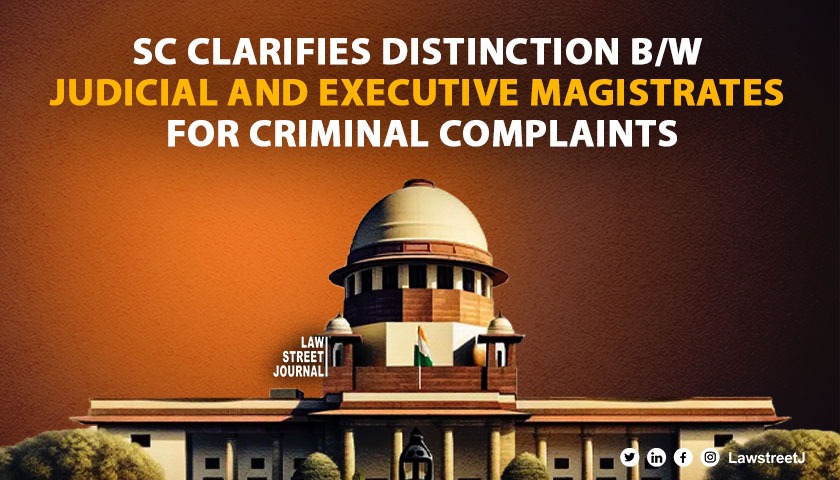New Delhi: The Supreme Court’s Division Bench has delivered a significant judgment, clarifying that criminal complaints must be filed before Judicial Magistrates, not Executive Magistrates, under the Criminal Procedure Code.
Justices B.V. Nagarathna and Nongmeikapam Kotiswar Singh addressed an appeal against the Allahabad High Court’s refusal to quash criminal proceedings.
SC Clarifies Judicial vs Executive Magistrates’ Roles in Criminal Complaints
The case arose from a complaint filed before a City Magistrate (Executive) regarding incidents at a hostel run by Sampoorna Development India on June 3, 2015, where the appellant was accused of obstructing public servants.
The court observed: “A complaint within the meaning and scope of the Criminal Procedure Code would mean such a complaint filed before a Judicial Magistrate and not an Executive Magistrate.”
Criminal Complaints Under CrPC: Supreme Court Defines Proper Jurisdiction
Addressing the legal requirements, the court further noted: “The complaint has to be filed before the court taking cognizance, and the complaint required to be filed under Section 195(1) of the CrPC can only be made before a Judicial Magistrate, not an Executive Magistrate, who does not have the power to take cognizance of an offence or try such cases.”
The Division Bench quashed the criminal proceedings, holding that a complaint filed before an Executive Magistrate cannot be regarded as a valid complaint under Section 195 of the CrPC. While examining the FIR’s contents, the court also observed that it failed to disclose the ingredients of criminal force or assault required under Section 353 IPC, noting only allegations of “creating disturbance.”
The court emphasized: “There can be no doubt that there is a sea of difference between ‘creating disturbance’ and the terms ‘assault’ and ‘criminal force’ mentioned under Section 353 of the IPC.”
Case title: B.N. John Vs. State of U.P. & Anr.











